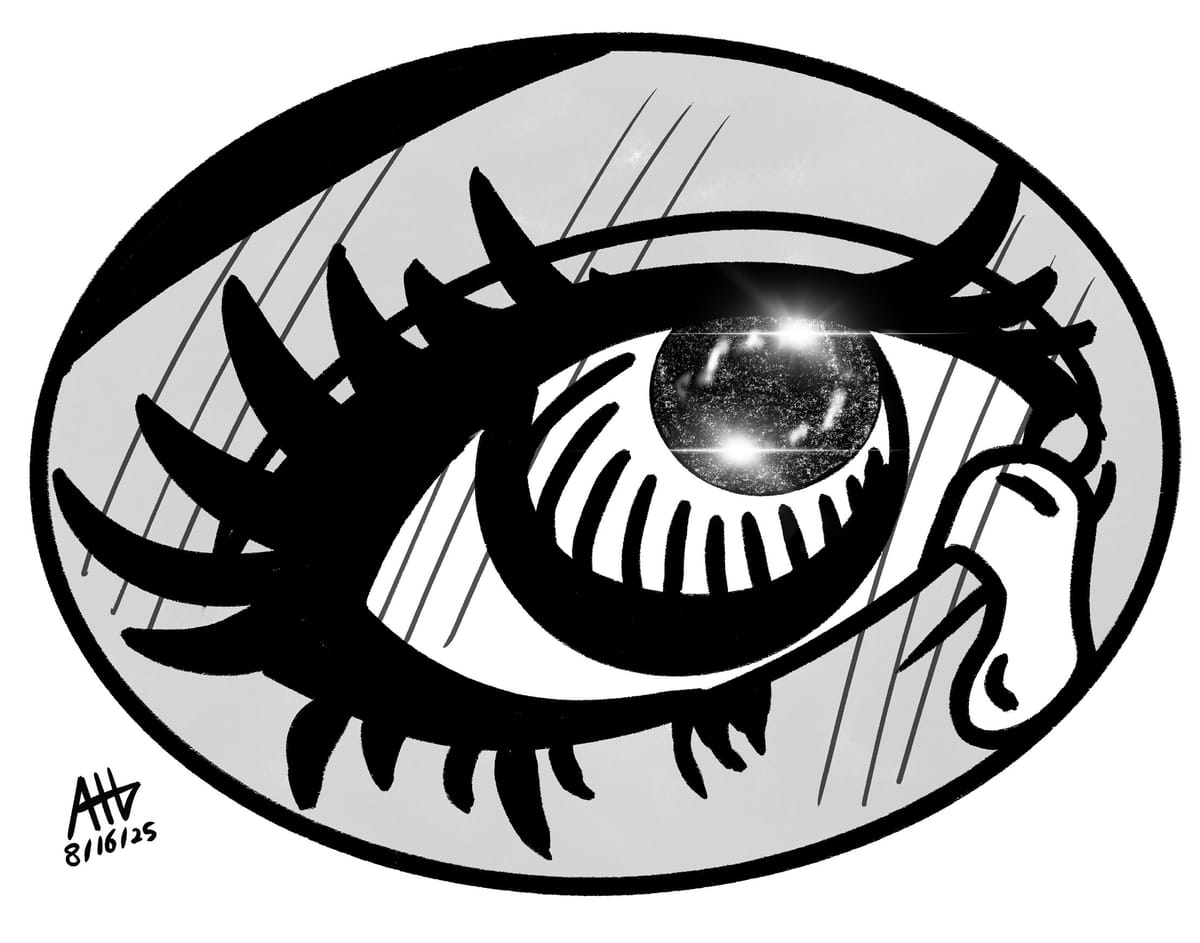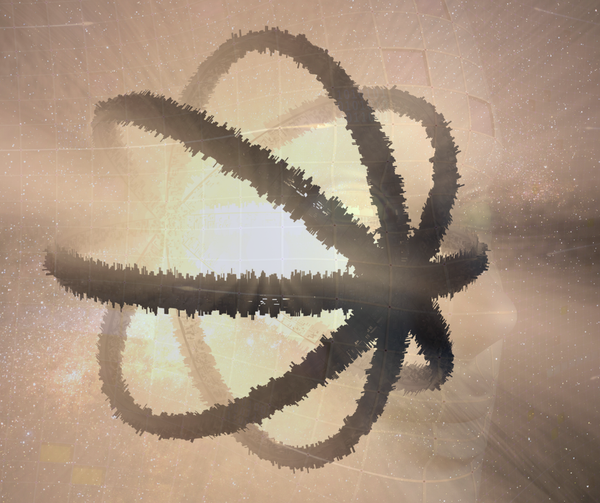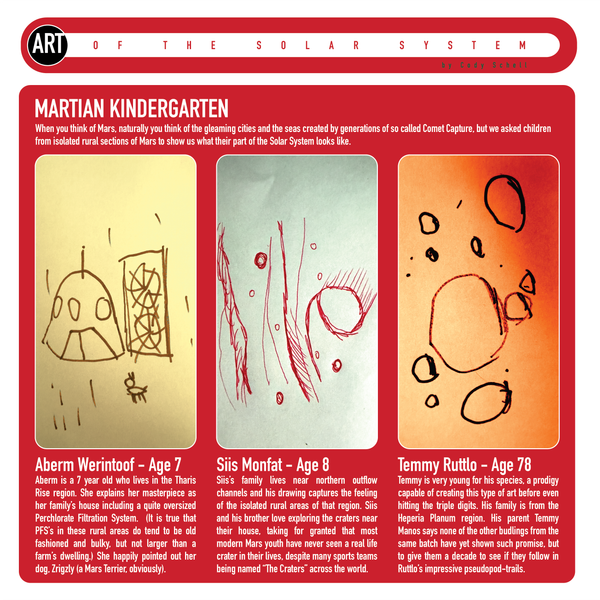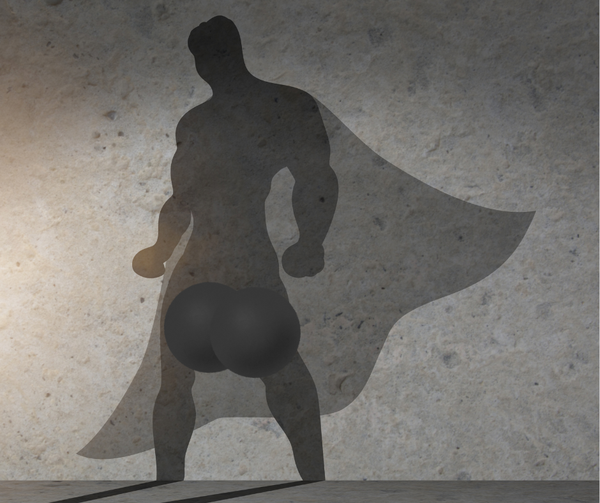Worlds Within, Worlds Beyond

by Meredith Kinrys
Art by Arnold T. Blumberg
The only blessings of drifting aimlessly through space, far from any planet to call home, are visits from mysterious spirits we call mermaids.
The origin of the ominous spectres that swim past our windows is a mystery, but their long bodies of light tapering into billowing tails resemble the mythical creatures. Seeing them is rare; it’s said they only appear to guide souls to the great beyond.
My wife found me staring out the large windows of our isolated colony ship. I liked to look off into hazy distant galaxies and imagine a more hopeful place. But that day, for the first time, I was compelled to look forward.
She was having a baby girl.
Pregnancy is uncommon here. With limited resources and synthetic nutrition, everyone’s health is poor, unlike the lucky souls back on Earth. As a teacher, I’d accepted instructing the next generation on survival basics as the only way to pass on what little of myself I could. But sometimes, I dared to teach the kids more. Of dreams, and the limitless possibility of the human imagination.
Tears brimmed in my wife’s gold-flecked grey eyes. I looked into them deeply and found the same feeling I was experiencing: hope.
Our daughter was more beautiful than I could comprehend. She had warm waves of wild brown hair and the same grey eyes sparkling with gold, entire galaxies enclosed within. When I first held her, a love far eclipsed the previously narrow confines of my body. Holding my wife was a comfort inside this bleak place; holding my daughter took me beyond.
As she grew, it was clear our daughter was meant for more than this colony provided. I told her stories of princesses, castles, and dragons. And of mermaids. She asked me—begged me—to tell her she could see it all one day. I hesitated. I didn’t want her losing her hopeful spark, to stop dreaming of worlds outside this floating prison.
“Baby girl, mermaids are undoubtedly real.”
“They are?” Her sleepy eyes sparked to life as she looked at me from under drab itchy sheets blanketing her.
“I’ve seen them,” I said. “Long ago. After my own dad passed away to journey to the stars. They floated and danced in front of our big windows. I thought maybe he was one of them.”
She giggled and pulled a tattered edge to cover her mouth. “But Daddy, mermaids are girls!”
I chuckled softly and stroked her hair. “I suppose you’re right, baby girl.”
The only ‘new’ things here were the bare essentials shipped from Earth, but that didn’t hinder our daughter’s ability to create. Using scraps of metal, wire, and tattered patches of fabric, she wound together a semblance of something she insisted was a mermaid. She used grease to paint on smudged eyes and a smiling mouth. The long pliable triangle of sheet metal was a tail, and oh, how she played with that doll.
“Nyeeoooow-WHEE!” She held the mermaid up above her tiny body and danced in circles.
“What’re you playing today, baby girl?” I’d ask her.
“I’m playing Sthpace Mermaids!” she’d say with her perfect little lisp. “We’re flying through sthpace together!”
Watching her jump and twirl around with her mermaid, I saw the future. She’d join the team that salvaged parts of defunct ships, discovering ways to bring them back to life. She’d be our colony’s first pilot and travel to the furthest reaches of our galaxy, forging a path ahead into a greater unknown, space mermaids dancing beside her ship.
The problem with hope is, if it proves false, it destroys you more wholly than never hoping at all.
The doctor spoke in hushed tones while our daughter slept fitfully, breath ragged.
“It’s the colony plague. It’s back again.” His eyes were concerned.
“She’ll be fine,” my wife snapped. She wasn’t asking. “We’ve both had it and survived. She has strong genes. She’ll be fine.”
“Yes, well, reports suggest this variant—” The doctor cut off under the heat of my wife’s glare. He scratched behind his collar and cleared his throat. “Yes, of course, you’re right. Strong genes.”
The doctor packed up his things. He caught my look of desperation on his way out. He smiled weakly, corners of his eyes crinkling. “She’ll be fine.”
We both knew it was a lie.
My wife held our baby girl tight as she exhaled her last shallow breath.
For the endless stretch of days following, we stared out the window into cold, unfeeling space. Everywhere else reminded us of places our baby girl used to dance and play, full of life, creating worlds none of us had ever imagined.
I’d hold my wife’s hand, icy fingers unable to offer comfort. Her other hand held the mermaid, discarded junk that our baby girl had turned into beauty.
The blackness of space understood the depth of our grief. So, we watched, feet rooting into the cold metal underneath, ignoring our hunger and our pain and our deep, endless despair.
Then one day, they appeared.
Like ghosts floating up from the abyss, ethereal creatures of wispy light glided past the window, dancing in great spirals before our eyes. As they swam, they gave a haunting cry, a sorrowful moan that encapsulated our grief.
One spectre moved quicker than the others, weaving over and around them, exuberant and playful. My wife’s hand jolted to life, her fingers tightening around mine.
No one knew what these spirits of pale light were. Ghosts, lost in space; groups of neurons pulled towards an energetic source; or souls, freed to dance and play among the stars, untethered by malnourished bodies and great, metallic prisons.
I dared to hope again. There was a life outside our own, a place where mortal confines could no longer hold us back and we could stretch out to the furthest corners of our imagination, of the universe, and we’d be-
“Free,” my wife breathed out, an echo to my own thoughts. “There she is. And she’s free.”




